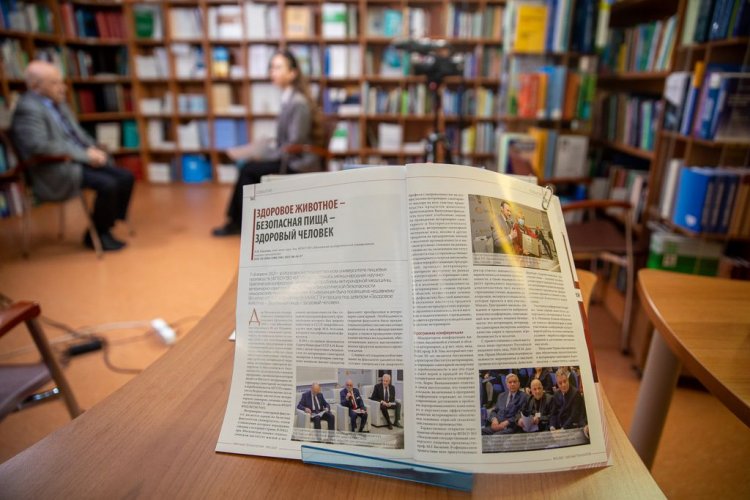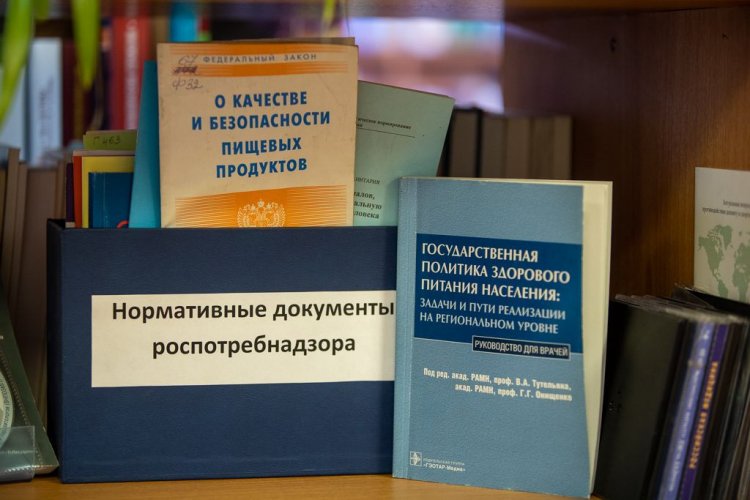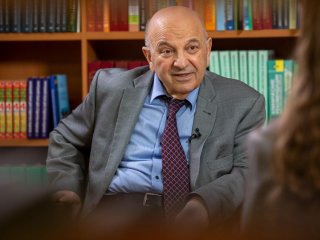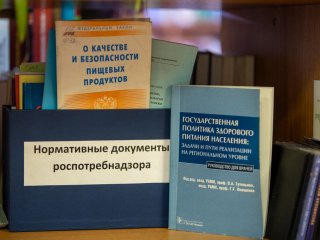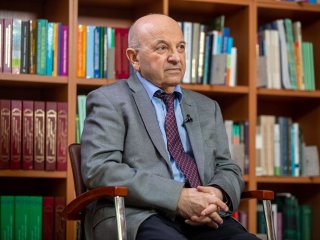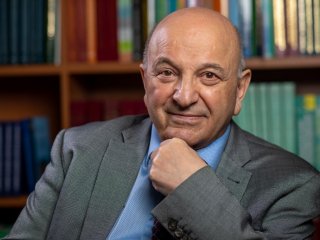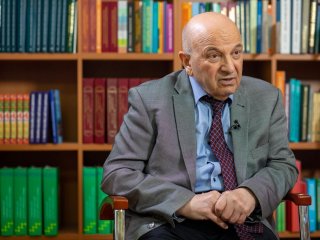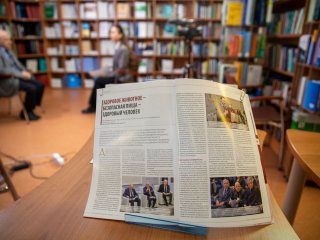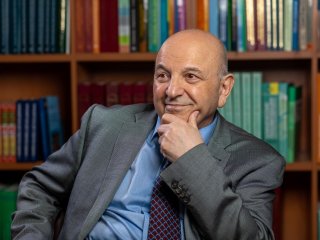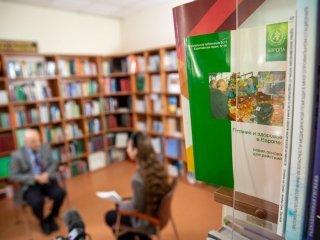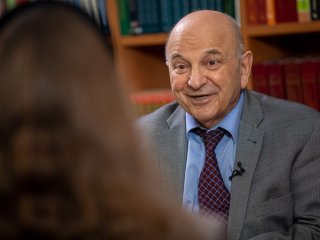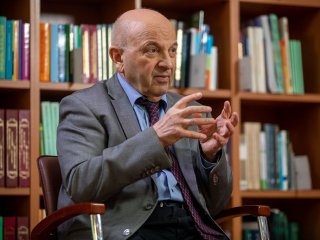Every day there are many changes: scientific discoveries are made, new technologies appear, but one thing remains unchanged: people need to eat. We learned about how the culture of our nutrition is changing, what synthesized food is, and how to eat according to science from the Chief Nutritionist of the Ministry of Healthcare, Academician of the Russian Academy of Sciences, Scientific Director of the Federal Research Center for Nutrition and Biotechnology, Viktor Aleksandrovich Tutelyan
- In several interviews, you say that the culture of nutrition should be taught, as they teach mathematics and literature. Is it really at such a low level now?
Unfortunately, yes, everywhere, and in Russia in particular.
Nutrition is a changing field both in terms of new technologies and innovative approaches to the production of food, foodstuffs, agricultural raw materials, and, of course, it has a scientific basis.
Nutrition science is very multidisciplinary, I would say probably the most multidisciplinary science that absorbs the knowledge of all basic sciences: physics, chemistry, biology, mathematics. Now, for example, digital nutrition science is developing. It also connects all medical and biological sciences. All of them should contribute to nutrition science. All of them are in demand for nutrition and vice versa.
- How does the food culture change over time?
The more we learn about nutrition and what a person needs, the better. Food is not only a source of energy for a person to move and carry out all functional and physiological processes, but also a source of 200 chemical compounds that must be obtained. At the same time, 50 of them are irreplaceable, that is, if they are not in food, they are not in us. They cannot transform, and the body does not have enzyme systems that can metabolize and convert one into another. Around 150 we can, but 50 others we can’t. They are called essential, or irreplaceable, they must necessarily come with food. To know where they are, to know the chemical composition of food products, to make up diets that will fully provide us with all these substances, this is now the frontier of science, and nutrition science is engaged in this.
- Is it possible to get all the necessary vitamins only from food?
It’s not only about vitamins but also about vitamin biologically active compounds. For the last 20 years, we have been actively engaged in minor biologically active compounds that are found in food, especially in plant foods. They turn out to be exogenous regulators of our metabolism. If we have them, we are protected. They are responsible for the expression of genes that synthesize the enzymes of antioxidant defense of the xenobiotic metabolism. And this is very important for our resistance to adverse environmental factors, that is, the body stability. Therefore, knowledge of these things and further practical application in the diet composition, finding out what we lack, what we will not be able to get with food – this is important for the health of both children and adults. We are facing a dilemma. The nutritional density of the diet and products has not changed in either 100 or 200 years: the volumes of vitamins, for example, in tomatoes or other foods, remained the same. But if in the past we were actively working, there was physical activity, and we spent about 3200–3500 kilocalories of energy, in this volume we received all the necessary micronutrients, now 1800 kilocalories per day is optimal for a woman, and about 2000 kilocalories for a man. That is, having received the benefit of civilization, we have reduced our physical activity. The need for food as an energy source has dramatically decreased by 1,000 calories and even more. And in this truncated diet, it is even theoretically impossible to get all the necessary micronutrients. And if we add culinary or technological processing, then we get a deficiency of micronutrients. This is a global challenge for all developed and not very developed countries.
Excessive calorie intake is the second problem. This is excess body weight in the form of fat, which not only spoils our mood when we look in the mirror, but also causes a subsequent change in body weight – class I, II, III obesity, and this is a bouquet of diseases: atherosclerosis, coronary heart disease, myocardial infarction, strokes, hypertension. Death comes from the consequences of such severe diseases. And the basis is a violation of nutrition. Therefore, now with new innovative technologies and methods of production, we must make food compact in energy value, but at the same time saturated with all the necessary trace elements, vitamins, and other biologically active compounds. Such products should be increasingly included in our diet. It is necessary to teach a person to use it, to read the label correctly, to understand correctly what is needed, and to make up the rations correctly so that it is complete, and not as it often happens when people eat anything they can get. Yes, it can be very tasty food, but it is deficient in a number of compounds, which means damage, punishment, and violation of the law on nutrition. This is punishable by loss of health, and in severe and prolonged violations – death. That’s why it’s so serious.
Food culture is primarily about knowing what we need, with what, and how we can get it.
The second side is a certain willpower and the ability to limit yourself, because almost 50% of the population over 30 are overweight. About 26% of the adult population suffers from obesity. In any team, look at how many people are overweight. If earlier, 40 years ago, when a person returned from vacation, others would say: “How well you look, you've gained some weight,” now it’s an insult and now they say: “How well you look, you’ve lost weight.” It’s funny, but it’s health and longevity. To live and be active for a long time, you need knowledge. This is part of the food culture.
- Is there a need to eat more sugar to make the brain work in the era of the information boom?
No, it is absolutely not necessary, because glucose turns into fat, and we, on the contrary, are against excessive sugar consumption. It is quite enough what we already get.
- Returning to the point that about 2000 calories are enough for a modern person, and our ancestors needed about 3000–4000. So, the problem is that we are less active, right?
Yes. There are two ways to go: to reduce the diet volume and saturate it with products enriched with micronutrients, and the second direction is to increase physical activity. Our President also says that it is necessary to build stadiums, revive the cult of sports and the cult of an athletic figure. A sportsperson is a respected, progressive, and modern person. This is what we have lost and only now we are starting to speak and act in this direction anew. Stadiums are open, free, so go play sports. This applies to young people, the elderly, and children, which is very important. If we increase physical activity, then beautifully looking sweets and other enticing foods that are high in calories are leveled, but if we do not waste this energy, then it is harmful. And if we spend energy adequately, then this is the joy of life. This is the culture – not only to know but also to restrain yourself. I used to be surprised that the richest people, some capitalists, go to a restaurant and order food in small portions. It would seem, take it, everything is available to you. But no, he limits himself. Maybe he would have eaten, but realizing that this is a blow to health, he limits himself.
We haven’t learned to limit ourselves yet. We had some difficult periods of life in the country: we knew hunger, restrictions, and lack of funds, so we have a different attitude toward food. To reverse this attitude and understand that a lot does not mean good is very important.
Historically, we have genes from the wartime, post-war famine times. Parents who raise their children, grandchildren, have experienced this for themselves, these forced restrictions.
Often, when you walk down the street, you see that as soon as the child whimpers, they immediately give them candy. While in other countries, candy is a joy and a pleasure, but once a week. And the child is brought up from childhood.
In general, healthy eating should be done not from birth, but from the beginning of life. When a mother does not yet know that she may soon become a mother, but she knows where children come from, she should take care of herself: she is responsible for herself and the future generation. A deficiency of one vitamin can lead to fetal death, intrauterine death. It would seem that folic acid is a simple compound, but even a small deficiency of it leads to the risk of various pathologies. This is the culture of nutrition – knowledge about calories, about the chemical composition, then this knowledge turns into your and your family’s eating habits and eating behavior.
Wealthiness is also important, because the higher it is, the better you can build your diet. But this does not mean that a less well-off person is forced to suffer from malnutrition. You can be moderately poor and healthy or rich and sick. It depends on the food culture and knowledge.
- Fractional nutrition: is it necessary?
To be honest, and I am infinitely frank with you, I am against it. But when they ask me what diet you recommend, I will answer that any. Because following a diet can harm only a few, and thinking about your diet, looking at the scales, your diet, and generally thinking about your diet is already a benefit.
From the viewpoint of science, fractional nutrition does not give anything.
- Does insulin affect weight loss and is it worth choosing foods with a low glycemic index?
Of course, and with a low glycemic index, and low in fat, carbohydrates, but enriched with vitamins and minerals, trace elements, biologically active compounds. We must stimulate trade, create demand for these types of products, and trade will stimulate demand for these types of products.
Foods with a high glycemic index give a rapid release of insulin. And this is how diabetes mellitus develops – a scourge that is growing in our country and in the world. This is a very serious metabolic disease when almost all organs and tissues are damaged. It can be prevented by food with a low glycemic index that does not cause an immediate release of insulin. That is, easily digestible carbohydrates give such an answer of the body. This is a load on the pancreas, depletion of the pancreas, and all sorts of disorders that lead to diabetes mellitus.
- I can’t help but ask about sports supplements: now sports nutrition is being sold at every step. Are protein, creatine, and amino acids a real help to the body in training, or is it just marketing?
Both. Of course, an athlete who carries heavy physical loads should receive appropriate amounts of both energy and protein for the synthesis of muscle tissue. But all this should be done in moderation and in combination with medical monitoring of the athlete’s diet, which is done for highly qualified athletes. And for those who just go to the stadium and just want to “bulk,” such additives can be harmful. Therefore, I believe that a nutritionist should be in every fitness club, not necessarily all the time, but their advice is very useful. Because intense physical activity requires a correction of the diet. And the right recommendations can help. You can adjust the diet without additives, but you can also do it with them but under the supervision of a doctor. These are protein supplements, the so-called proteins, which can give an additional load on the liver and kidneys. You need to be careful here.
- Are there any exact recommendations? For example, that you need to eat fish twice a week. Or is everything according to needs?
We are heterotrophic animals; we get energy only from food. And everything you need is also only with food, so all the calls to look at the Sun and absorb its energy are nonsense.
There are two laws that I have already mentioned. If we do not comply with them, then where we get the necessary amounts of chemical compounds is not so important. You love fish – you are free to have it. If you like eggs, like them with restrictions, because the yolk contains fat and cholesterol. Meat, too, needs not to be limited, although it is better to limit the so-called red meat because it contains a lot of those chemical compounds that we need in limited quantities. And the white meat: chicken meat, veal, fish, milk proteins, which are also very beneficial, are all full-fledged animal proteins that should be in our diet. And how they will be presented depends on the taste behavior.
The more diverse, the better. Is vegetarianism good or not? Potatoes, carrots, cabbage, and apples – this is not enough. And if soybeans, soy, soy proteins, or other beans are well represented there, then this is not bad, because they are closest in amino acid composition to animal proteins. You can compensate and be a vegetarian, but vegetarians are especially hard to monitor the fullness of their diet. The more we limit and remove something from the diet, the harder it is to compensate. The final result is the amount of energy equal to your energy consumption, and the composition and amounts of biological substances that you must necessarily receive. Especially the irreplaceable ones. If there is no amino acid, for example, when you eat only bread, then there is a deficiency of lysine, protein synthesis stops. And protein synthesis in our body is everything: all our cells, cellular structures, molecules. Everything is at the heart of a protein molecule. If one amino acid is missing, then protein synthesis stops. And when it is not there, then you need to take it from somewhere: the muscles begin to collapse. Fasting: is it good or bad? For example, two days is not fasting. During this time, only glycogen will be released, a little fat. And if it’s longer? Here, the need for other chemical compounds, which are very important, is high, and therefore muscle atrophy begins. Muscles disintegrate, they are used to cover our needs, but at their expense: they eat themselves.
- Is fasting to lose weight quickly a bad decision?
It is a bad decision. Restrictions – yes, reducing carbohydrates, fat – yes. But you need to follow the rest very clearly. Complete protein, vitamins, trace elements, minerals, and biologically active compounds. Therefore, the diet basis of a modern person is traditional products, products of specialized preventive purpose plus food supplements – vitamin and mineral complexes. You swallow them – and partially solve the problem of micronutrient deficiency.
- When should we take food supplements?
Constantly. In the morning, a multivitamin and mineral complex. And then you should not be afraid of a shortage of some individual vitamins or trace elements, which is why they are so popular now. This is not a panacea or a cure. If someone attributes some miraculous properties – this is a lie. It is supplementing of the food with those biological compounds that we need. It is part of our diet, but in a convenient form, a necessary supplement.
- In 2013, scientists at Maastricht University in the Netherlands presented to the public the first-ever hamburger created in the laboratory. The meat for it was grown from stem cells. Do you think synthetic food will bring benefit or harm?
New technologies are being introduced into nutrition and food production. These are cellular technologies that make it possible to grow a myofibril cell on some basis. Let them be. And when it comes to practical application, these are the same proteins and useful compounds, but in a different form. And how they are then served and what they are sprinkled with, creating the illusion of natural meat, is secondary. The main thing is security, and that there should be what we need. Therefore, such technologies must be possessed. We should not just keep up but go ahead. Science in general and Russian science in particular. That is, the development of innovative technologies, production of individual nutrients, dietary fibers that we need, vitamins, minerals, trace elements, biologically active compounds, the ability to combine them into optimal formulas for humans, optimally close to the peculiarities of metabolism, age characteristics of the body. For example, the vitamin content and diet for the elderly should be adjusted.
Each age group has its own characteristics. For example, children have not yet formed all the body systems, and in the elderly, they are already worn out and do not work properly. By correction through nutrition and specialized food products, we can fix this. But the main thing here is our community – I know what, and you know how to convey it to everyone. Here is the state also has a role: it motivates us to exercise and have a proper nutrition. And this is very correct.
- How can you understand that it’s time to edit your diet?
First come the scales, your weight control. It is not necessary to get on the scales every day, but every other day. Control, but not starve, or at least sharply limit. This is the most effective and easiest way.
- Do we need to adjust our diet depending on the time of year?
It is adjusted independently from us. In fall and summer, vegetables, fruits, and berries are more available and we eat more of them. In winter they become more expensive, but we should not give them up altogether: there are no berries, but apples, which are stored well.
- Are we allowed to indulge in fast food and junk food sometimes?
Yes, but I never call food junk. If it carries nutrients, then it is classified as food.
Frequency and quantity. If you eat fast food every day, then, of course, it’s bad. There’s a lot of fat in there. And if you do it once a month, then it’s not harmful. There is no need to be afraid and create some kind of cult. Everything should be accessible, and everything should be properly regulated. But the main thing is the frequency and quantity.
But we have not touched upon an important aspect: food can be both a source and a carrier of potentially dangerous substances. Food safety is one of the cornerstones of nutrition science. Identify potential hazards, develop detection methods, organize monitoring, constant control, and introduce regulations if necessary. Because food is a good substrate for the development of microorganisms.
- That is, food can be harmful?
Of course, when it is contaminated with microorganisms, and you have violated the storage conditions at home, it can pose a real danger up to a deadly threat. Perhaps, each of us suffers from food poisoning once or twice a year. This means that you have violated something, or the store allowed the product remain past the expiration date, or you have not looked at it. But an important task is to teach how to read the label. First of all, the expiration date. Look for the products where the shelf life is longer so that you have a warranty. And if you opened the package, then you need to clearly monitor the temperature regime, remove the products from the table so that there is no risk of microbiological contamination or moldiness. For example, bread gets moldy and we throw it away – that’s right. Mold fungi are very dangerous, they produce toxins. We call them mycotoxins. The toxins of microscopic fungi that also have acute toxicity. This needs to be monitored, and food safety is of paramount importance.

